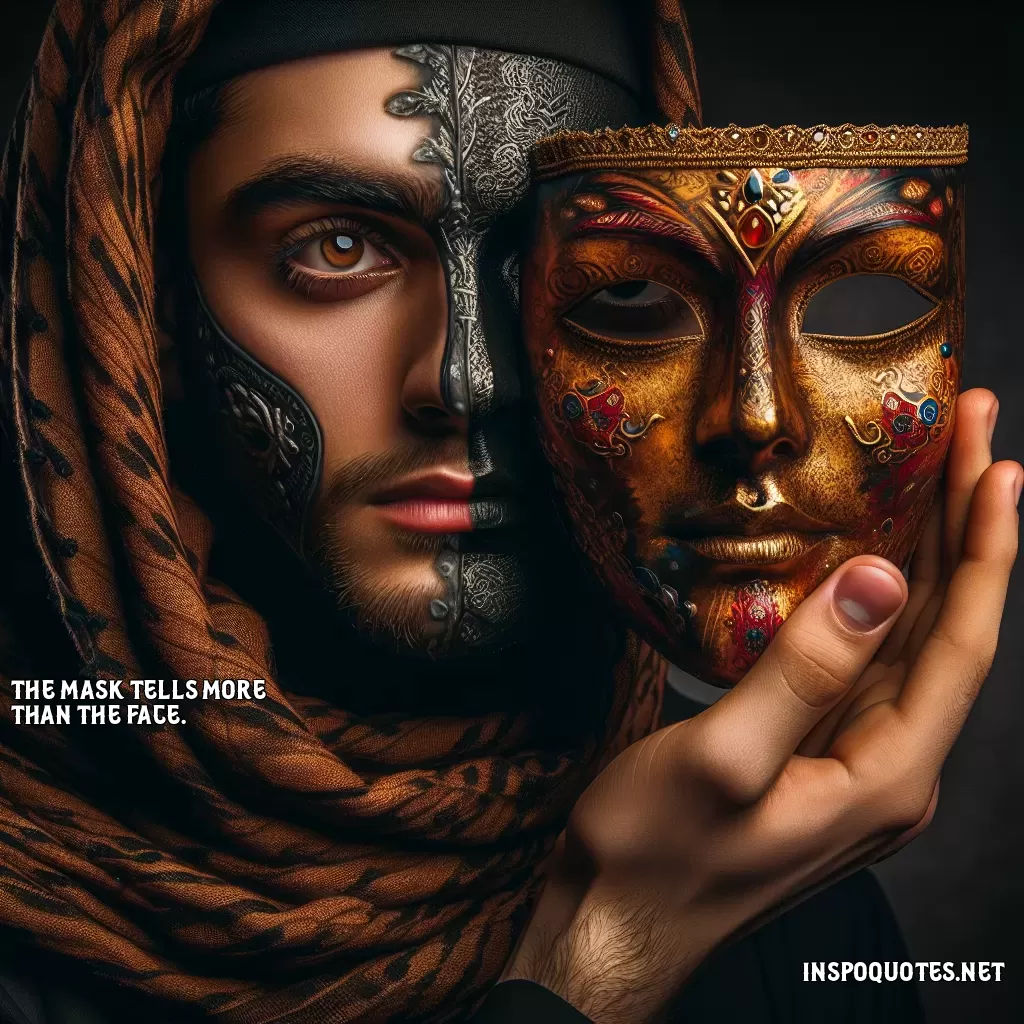
The mask tells more than the face.
Author: Oscar Wilde
👁️ 8 views
The quote "The mask tells more than the face" suggests that what we choose to present to the outside world—our "mask"—can reveal more about our true selves, intentions, and inner thoughts than our uncovered face could. Traditionally, a mask is seen as something that hides, conceals, or disguises identity. However, the act of selecting a mask or fashioning a facade can inadvertently communicate significant information about an individual's character or emotional state. Firstly, masks can reflect the societal roles we adopt. For instance, a person may put on a mask of confidence and composure in their professional life while concealing underlying insecurities or anxieties. This choice of mask reveals a desire to meet external expectations or cling to social norms, thus indicating how deeply a person values perceptions and judgments of others. Furthermore, the mask can underscore internal conflicts or aspirations. Selecting a mask that portrays strength and resilience might suggest a person's inner battle with vulnerability or a wish to become more like the mask’s persona. This divulges truths about personal aspirations or internal struggles that might not be apparent through facial expression alone. Additionally, when individuals use masks to protect themselves emotionally, they inadvertently provide insight into what they fear or find threatening. For example, a jovial or light-hearted mask can imply that someone is deflecting deeper emotional experiences such as sadness or rage. Lastly, the quote underscores the paradoxical nature of human interaction: that our attempts to conceal or present a certain image can, in reality, communicate our deepest truths, desires, and fears. This concept invites us to consider the possibility that authenticity may sometimes reside more in the artistry of our masks than in the candidness of our unadorned selves. The mask, in its silence and subtlety, becomes a canvas depicting the unspoken facets of our identity.
Quote By: Oscar Wilde
Oscar Wilde was an Irish playwright, poet, and author known for his wit, flamboyant style, and sharp social commentary. Born on October 16, 1854, in Dublin, Wilde gained fame in the late 19th century with works such as "The Picture of Dorian Gray" and the play "The Importance of Being Earnest." His life was marked by both great literary success and personal scandal, culminating in his imprisonment for "gross indecency," after which he lived in exile until his death in 1900.
Bio added on: 2025-02-13 09:03:07